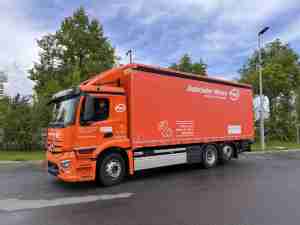However Cathy Roberson, Ti's Senior Analyst and author of Ti's latest report, Europe e-commerce Logistics 2013, raised a note of caution: 'Although mail, express and logistics companies are benefitting from the growth of e-commerce, to date few have developed the sophisticated services which e-retailers demand. A large proportion of logistics functions are still not out-sourced, as retailers believe that they are better positioned to undertake these operations themselves. Likewise the product range provided by carriers is very patchy ' as is service quality. The industry will need to up its game, otherwise it will prove a drag on the development of internet shopping as a whole.'
According to the report, the European e-commerce logistics market was worth '39bn in 2012. Despite growth right across the region, the report points out that European countries are at different stages of online retail maturity. Currently, the United Kingdom, France and Germany comprise over 70% of total European online sales. The report provides a breakdown of the 'e-logistics' market size by individual countries as well as analysing the structure of these markets.
Another factor in the uneven growth of Europe's e-commerce market is the challenge presented by cross-border trade such as language, culture, VAT fees, banking rules and other national regulations and legislation. European e-commerce Logistics 2013 highlights the key trends affecting the region's retail market, with a particular focus on these cross-border challenges as well as the growth of m-commerce and multi-channel retailing.
Ti anticipates that the European e-commerce logistics market will grow to approximately '50bn over the next three years.









